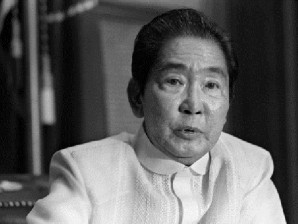Bicam panel fails to reach decision on compensation for Marcos human rights victims
MANILA, Philippines — The bicameral conference committee on the on human rights compensation bill for victims during the Marcos regime on Wednesday agreed on several points but still failed to reach a decision on whether to grant compensation for the victims who won in a case filed in Hawaii.
Bayan Muna Representative Neri Colmenares told this to reporters in a chance interview after the meeting, saying that talks scheduled next Wednesday at 9 a.m. were to focus on reconciling the position of both chambers on the Hawaii plaintiffs.
Senator Teofisto Guingona III said that this was “one aspect we still have to talk about.”
“Pero walang napag-awayan. Whenever some issue is taken up there’s a discussion, one side gave in to the other,” he said.
Bayan Muna vs Akbayan
Article continues after this advertisementBut the issue has caused tension between Colmenares and Akbayan Partylist Representative Walden Bello, whom the Bayan Muna lawmaker earlier slammed for supposedly opposing the House version of the bill. He said that Bello opposed the 80-20 percent compensation for the Hawaii plaintiffs and other claimants.
Article continues after this advertisement“Bayan Muna believes that the latest statement of Rep. Bello that the version of the House in the Marcos compensation bill suffers from constitutional infirmities and that the House is about to abandon its version to give Hawaii victims conclusive presumption that they are indeed victims, is an attack against the victims of human rights during martial law,” he said.
But Bello denied raising the issue on the 80-20 percent compensation, hitting back at Colmenares for what he saw as an “unfair and malicious” statement.
He said that it was Senator Joker Arroyo who raised the issue, questioning its constitutionality and fairness. “It was he who raised issue of presumptive conclusion, not me. I found his arguments persuasive since he was involved in the Hawaii process, and there were 6,000 human rights violations not included in the Hawaii process.”
“This is not a case of the House versus Senate version but of what is right,” said Bello.
Bello was abroad on a human rights mission in Laos to look into the disappearance of a Lao activist and lambasted the difficulty to defend himself from Colmenares’ statement.
“It is a malicious distortion of Akbayan’s unqualified defense of human rights for them to say we are advancing the interests of Marcos,” he said.
Contentious Hawaii case
“Halos lahat ng provisions (Almost all of the provisions) we have agreed upon… (except on) whether to accord conclusive or disputable presumption to the US case,” said Albay Representative Edcel Lagman, a co-author of the House version.
“(They say) we shouldn’t accord too much credence to the decision of the foreign court but to my mind, claimants of the Hawaii case took the risk. The (court’s) position was final and executory and we should be able to satisfy this,” he said.
Commission on Human Rights chairperson Etta Rosales however insisted on verifying first before granting compensation.
“Verification is needed. I explained na doble-doble ang ilang pangalan sa master list, ano ito, conclusive na dalawa (I explained that there were double entries of names in the master list, and what are these, conclusive that we have two names?) Whether you like it or not, we will have to validate,” she told reporters.
Despite what Lagman felt was “hesitance” of some members of the panel, he said “eventually I think we’ll reach a viable compromise.”
Compensation Board
What the bicameral conference committee was able to agree on was the creation of a compensation board to scrutinize the application of human rights victims, said Colmenares.
“The board will be composed of nine members. It is not subject to the CHR but the President who shall appoint any person who fulfills the criteria,” said the partylist lawmaker.
The said panel will be nominated by a committee composed of officers from human rights organizations like Karapatan, Selda, and Find among others.
President Benigno Aquino III will designate the compensation board’s chairman.
Guingona said that the members of the board must have integrity and a thorough understanding of human rights and the martial law. He added that three of them should be members of the bar.
The bicameral conference committee targets to finish deliberating on the measure on Wednesday.
“If we agree by the afternoon, then we can have it ratified (at session),” said Colmenares.
